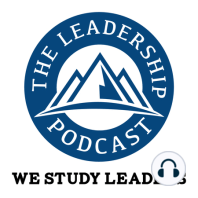53 min listen

TLP047: Insights on How Individual Self-Awareness Affects Team Performance
TLP047: Insights on How Individual Self-Awareness Affects Team Performance
ratings:
Length:
49 minutes
Released:
May 17, 2017
Format:
Podcast episode
Description
Dr. Tasha Eurich shares her experiences as an organizational psychologist, researcher, coach, and New York Times bestselling author along with her new book, Insight for improving self-awareness. Tasha explains the dangers inherent in poor self-awareness in leaders, individuals, and teams, and she provides specific solutions for achieving the self-awareness that will improve corporate culture, and client relations while supporting sustainable profit. Listen in for key self-awareness practices, and to download her free self-awareness quiz. Key Takeaways [2:38] Tasha discusses self-awareness at work. There are severe consequences in the workplace when people believe falsely they are self-aware. Having more self-aware executives brings financial returns to a company. Unaware behavior at any level has financial consequences. Tasha’s research says we live in a world where people don’t tell each other the truth, because the truth is uncomfortable. [6:10] Tasha worked with 50 people who had made dramatic transformations in their self-awareness as adults. Many common methods of finding self-awareness are more myth than reality. Jan and Jim were in the group of 50 test subjects. Tasha found that ‘unicorns,’ as she terms them, fight against personal and societal defaults to arrive at self-awareness. Unicorns seek feedback from people they trust. [12:08] Tasha discusses psychic frailty and psychic safety. Our biases tell us we are better than we are. Seeking feedback from others exposes our frailty. Psychological safety in organizations involves self-aware teams and organizations. It requires people to let their guard down and trust and support each other enough to tell each other the truth. It includes vulnerability. [14:50] We assume that the people that love us will tell us the truth, but research shows, they will tell us neither our weaknesses nor our strengths, without being asked. Ask them, “What annoys you the most about me?” You might hear something you’ve never heard before. It’s up to you to ask those questions. [18:18] Tasha gives an example of one of her self-awareness heroes, Alan Mulally (of Boeing Commercial and of Ford Motor Company). Tasha saw a person who has self-confidence, but who acutely appreciates his weaknesses, and is constantly questioning his performance. She illustrates this with an anecdote. [20:06] Tasha says unicorns are willing to admit what they don’t do well and question their own view. They also have self confidence. Tasha’s research differentiates between people who have unwarranted high self-esteem, and people who have self-acceptance. Self-acceptance is to appreciate your own strengths and weaknesses, and be willing to forgive yourself for your flaws, and find out the truth. [21:43] Tasha offers cues to look for in your team to see whether someone needs to be coached for self-awareness. Look for those who speak about themselves in a way inconsistent with their behavior, or with other’s perceptions of them. Coaching for those who are willfully disruptive is different than coaching for someone who is ignorantly ineffective. [24:48] Tasha offers suggestions on feedback in the organization. The mindset of giving feedback only once a year leads to embarrassment about problems that are not mentioned as they occur. At the very least, offer regular touch points of feedback that are informal and in the moment, to reap the biggest benefits of self-awareness and improved daily performance. Tasha tells how teams can do this. [28:07] Tasha offers thoughts on team awareness and individual awareness. Tasha tells of three building blocks for self-aware teams: a leader who models the way, the expectation and accountability to tell the truth, and an ongoing process to stay self-aware. You need an agreement to constantly check in with each team member, and the collective team, to stay self-aware together. [36:56] First-time CEO’s can suddenly find an absence of feedback. Tasha talks about Ed Catmull of Pixar., who,
Released:
May 17, 2017
Format:
Podcast episode
Titles in the series (100)
TLP018: Confidence, Humility, Humor & Corporate Culture: Colleen Abdoulah on Diversity and Inclusion Practices for a WOW! Culture by The Leadership Podcast